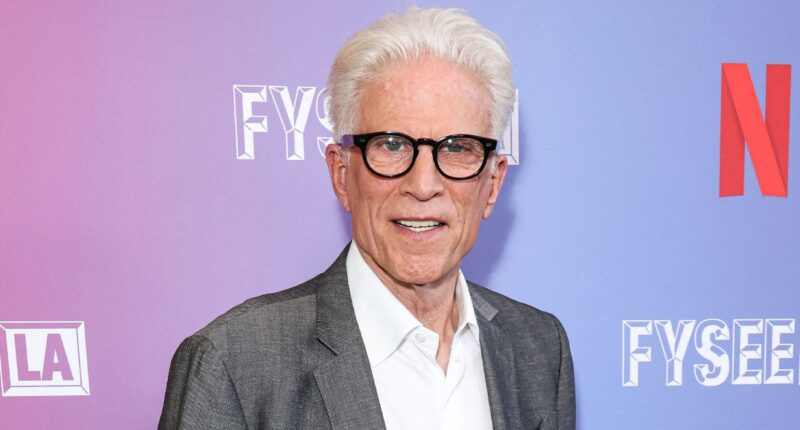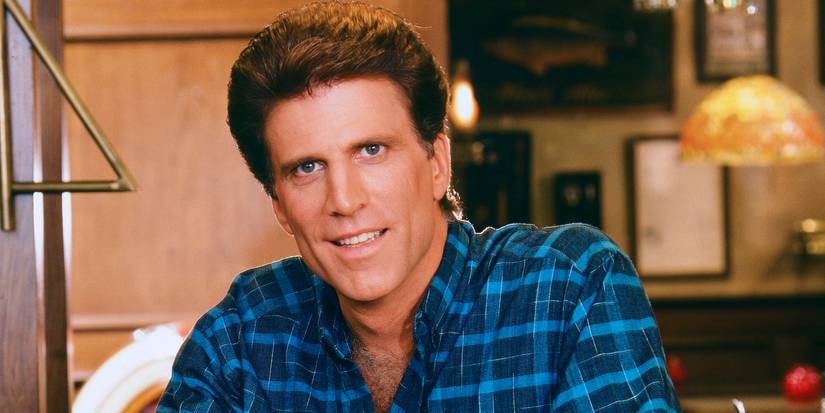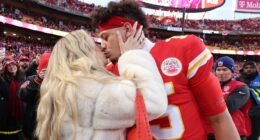It’s nearly impossible to talk about the history of sitcoms without singing the praises of Cheers. What started as a humble series about the daily lives of those who visited the titular Boston Bar became a pop culture icon that, even decades after it went off the air, remains one of television’s finest moments. Not only did it manage to remain a top performer for its 11 season run, it survived numerous cast shake ups and exits, and managed to get better with age. But all great shows come to an end, and, on May 20, 1993, Cheers served its final beer.
Much of the cast continued to work on television following the show’s conclusion, most notably with Kelsey Grammer finding great success on Frasier. Interestingly, Cheers’ leading man, Ted Danson, had his own successful follow-up that has been largely forgotten. Running for six seasons, Becker cast Danson in a role that was fantastically different from the charismatic Sam Malone, and crafted some of the time’s most engaging storytelling.
What Is Ted Danson’s ‘Becker’ About?
Created by Dave Hackel, Becker revolved around Danson’s Dr. John Becker, and, to put it frankly, the various things he dislikes. Operating a small practice in New York City, the character is somewhere between Curb Your Enthusiasm’s Larry David and Dr. House (Hugh Laurie). Blunt and brash, but also caring and intelligent, he is a fantastic lead. Whether you love him or hate him, it’s hard not to enjoy the ride that comes with the characterization.
Surrounded by a strong supporting cast that includes the likes of a pre-Lost Jorge Garcia, the show is a brilliant balance of comedy and social commentary. While Cheers did take on important issues, it didn’t always commit to its most biting topics. Becker, on the other hand, was able to approach controversial conversations more directly, thanks to his more brazen nature. Everything from queer rights and homophobia to poverty, political correctness, and mental health struggles were tackled head-on throughout the show’s six-year run. In fact, its willingness to talk so bluntly about various social subjects has led the show to age better than many of its contemporaries. But, fantastic writing and premise aside, the show would have been nothing without the legendary Ted Danson.
‘Becker’ Allowed Ted Danson To Prove He Was More Than ‘Cheers’
There’s no denying that, by and large, Dr. Becker could not be more different than Danson’s legendary Sam Malone. However, that doesn’t mean he isn’t any less enjoyable. It was, perhaps, wise for the actor to choose a role that is so different from Sam, considering it was his first major follow-up to Cheers. Where Sam was the ideal bartender, Dr. John Becker was ornery, set in his ways, and, at many times, downright unpleasant. But there was also a softer side to the character, one that made him more than the stereotypical, unpleasant archetype. Deep down, he cares deeply about his work and is an incredible doctor. He’s intelligent, and sometimes arrogant, but has a heart of gold and the skill to back it up.
Performance-wise, Danson ties all of Becker’s attributes together beautifully. Firstly, Danson is one of the world’s most beloved and endearing sitcom stars. His inherent likability predisposes viewers to side with the character from the time he first appears in the pilot episode, even with his unpleasantries. Likewise, Danson’s iconic comedic timing is pivotal to the character’s delivery. Even his most volatile lines and quips are made hilarious thanks to Danson’s skills, and could have easily fallen apart in the hands of another actor. Finally, Danson always portrays the character with a subtle amount of nuance. He never goes overboard trying to make the character likable, but his heart of gold is always in there, even when Becker doesn’t want to show it. So, while viewers shouldn’t expect Sam Malone, they can count on Danson’s talent to carry the character. However, fans of Cheers can enjoy certain similarities and nods throughout the show.
Considering how beloved Cheers is, it’s inevitable that comparisons would be made between it and Becker. Luckily, the producers seemed to know this as several alumni from the bar made appearances on the show. Players such as Grammer, Wendt, and Rhea Perlman all guest-starred in roles that were fun reversals of their Cheers counterparts. Wendt went from loyal bar patron to bartender in the episode “V-Day.” At the same time, the normally polished Grammer played Becker’s alcoholic long-lost friend, and Perlman ditched the feisty Carla for a calm therapist. It was a fun juxtaposition, especially when one considers how all of these players would also guest star on Frasier at some point.
But nostalgic guest stars aren’t the only Cheers parallels. From the beginning, Becker featured will they/won’t they storylines that ended up mirroring Sam and Diane (Shelley Long). Initially, Becker’s love interest was Reggie (Terry Farrell). For four seasons, audiences waited to see if the two would become a couple. However, Reggie was written out following the end of the fourth season, and a new interest was introduced in Chris (Nancy Travis). The switch certainly echoes Diane’s exit and Rebecca’s (Kirstie Alley) introduction, though Becker was careful not to lift the same tropes from the earlier couples when it came to the writing for their own potential romances.
Sadly, Becker would not have the same long-running success as Cheers, as ratings began to decline during its fifth season, and the network opted to end it after a shortened Season 6. As such, the show has been largely forgotten, but it remains a unique and wonderful entry in Danson’s filmography. However, in the age of streaming, there is no better time to check out this underrated gem. Filled with laughter, originality, and comforting nods to the past, the show is a delightful binge for anyone who loves Danson’s work.











